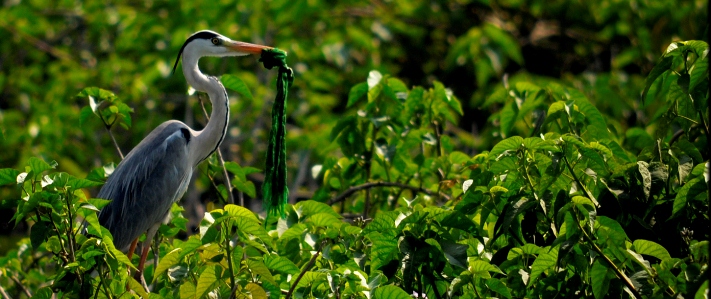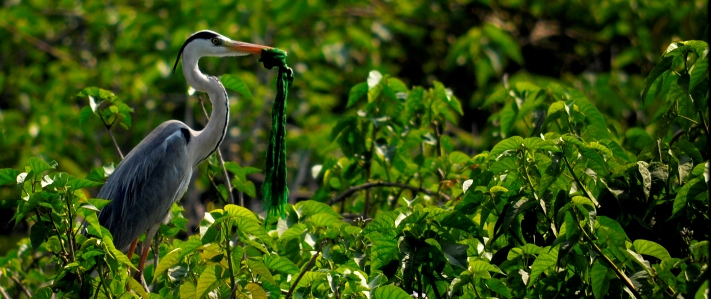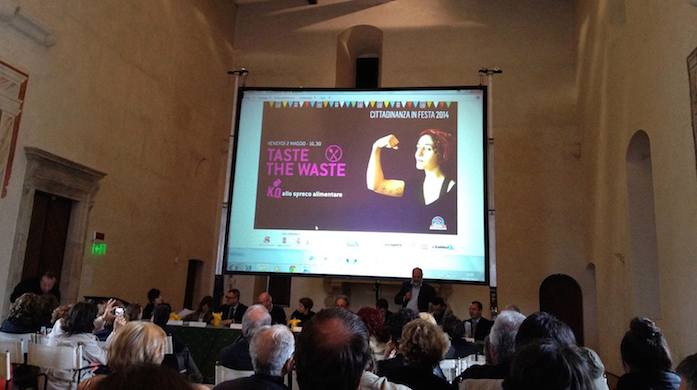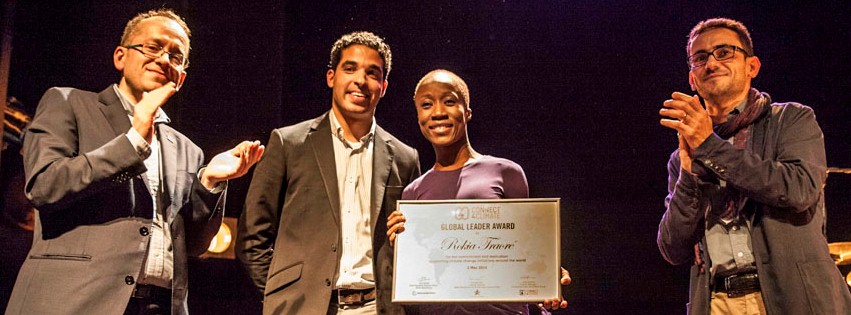
Cittadinanzattiva (Active Citizenship), an Italian nonprofit devoted to civic participation, organized the "SpreK.O. - Cittadinanza in Festa 2014" festival from May 2-4, to promote sustainable choices and raise awareness of waste issues. Earthday Italia and Connect4Climate partnered with Cittadinanzattiva for the event, which drew an estimated 1,000 visitors.

Photo: A grey heron holds a discarded nylon rope in its bill. Photo: Ashutosh Mahajan
Online discussion
The day before the festival, Connect4Climate organized a live web discussion on waste management issues on The Guardian’s Global Development Professionals Network. The two-hour Q&A session featured a panel of 10 experts, including John Morton, Senior Urban Environment Specialist at the World Bank, and Delphine Arri, Environment Specialist at the International Finance Corporation.
The online discussion drew a significant audience, with members posting 178 comments on a variety of solutions to waste. John Morton recognized the importance of monetary incentives to motivate people to improve recycling. David Jones from the Plastic Oceans Foundation added two great examples:
“In Dahab in the Sinai, no tin is on the ground because the locals understand their value and recycle them… In Germany, every PET bottle is worth 40 cents for recycling.”
David Jones also raised the point that plastic production accounts for 88% of the world’s oil reserves, and about 150 million tonnes of plastic waste is thrown away annually after just one use. In his opinion, to tackle waste effectively our throwaway lifestyle would have to change. John Morton highlighted effective examples for reducing consumption, including a plastic bag ban in Latin America, or the Styrofoam ban in the U.S.
Highlights from the online discussion were used to fuel panel discussions at Cittadinanza in Festa. The festival’s core theme, knocking out waste, was used as a thread to explore a variety of sustainability challenges.





